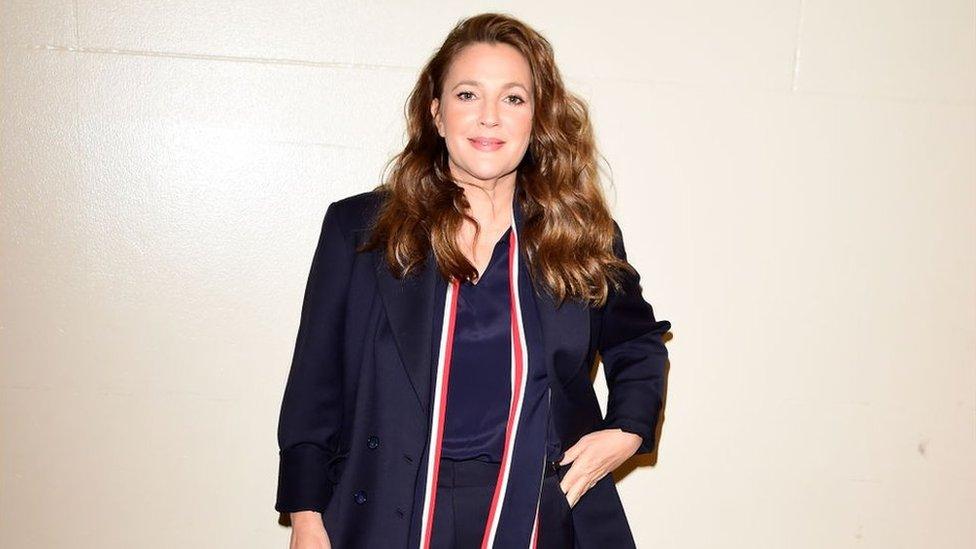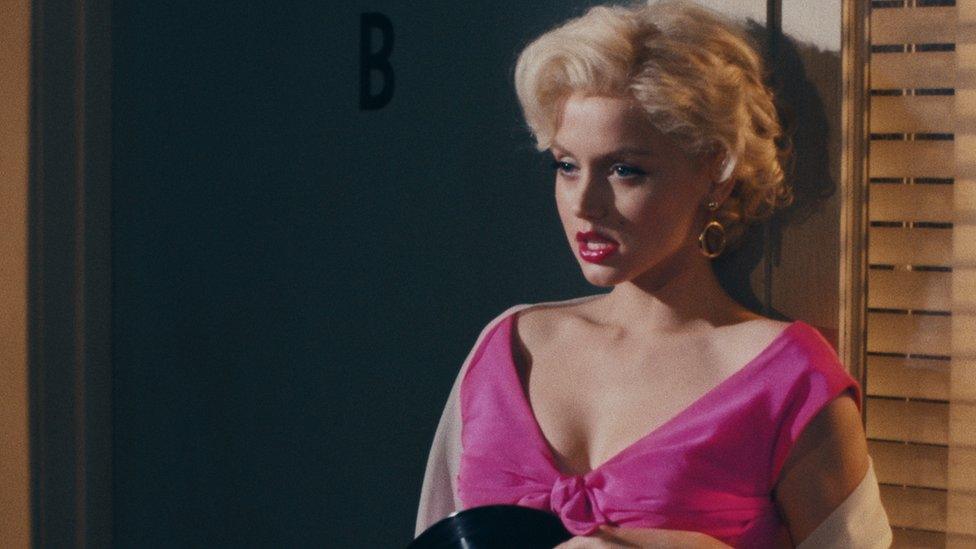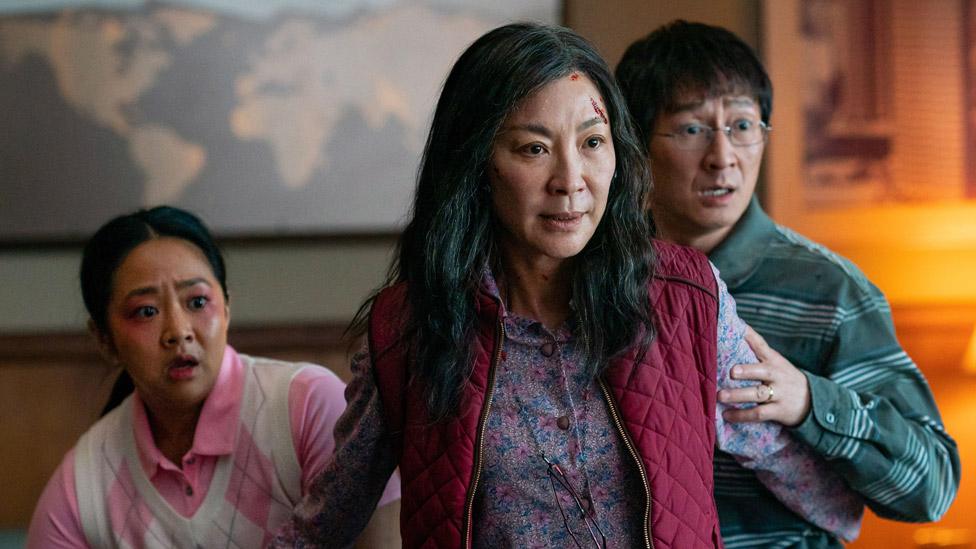Razzies 2023: Drew Barrymore calls child actor's nomination bullying
- Published

Drew Barrymore starred in the 1984 version of Firestarter
Hollywood star Drew Barrymore has criticised organisers of the Razzies awards for "bullying" a child actor.
The parody awards, which honour the worst films and performances, caused controversy by nominating 12-year-old Ryan Keira Armstrong for her role in the film Firestarter.
Barrymore, a former child star, said on CBS's Talk of the Table "when talking about children all bets are off".
Razzies organisers have apologised and introduced an age limit for the awards.
John Wilson, Razzies co-founder, apologised and said on 25 January: "Sometimes, you do things without thinking, then you are called out for it. Then you get it. It's why the Razzies were created in the first place.
"As a result, we have removed Armstrong's name from the final ballot that our members will cast next month. We also believe a public apology is owed to Ms Armstrong and wish to say we regret any hurt she experienced as a result of our choices."
Allow X content?
This article contains content provided by X. We ask for your permission before anything is loaded, as they may be using cookies and other technologies. You may want to read X’s cookie policy, external and privacy policy, external before accepting. To view this content choose ‘accept and continue’.
The Razzies, which calls itself the "ugly cousin to the Oscars" always reveals its winners a day before the actual Oscars. It is no stranger to controversy, having upset many actors, directors and fans over the years.
Barrymore, 47, also played Armstrong's character in the first adaption of the film Firestarter in 1984 when she was nine.
She has plenty of experience of being a child actor, having starred in E.T. the Extra-Terrestrial and Irreconcilable Differences.

12-year-old Ryan Keira Armstrong appears in the new Firestarter adaptation
Barrymore also previously interviewed Armstrong on her US daytime TV show, The Drew Barrymore Show, saying the 12-year-old "could not have been lovelier".
"I don't like it because she is younger," she went on to say on Talk of the Table.
"We do want to be cautious about how we speak to or about people, because it encourages other people to join on that bandwagon.
"I'm glad to see people didn't jump on the 'let's make fun of her' wave, instead people said, 'this isn't right'."
Related topics
- Published23 January 2023

- Published19 January 2023

- Published24 January 2023
